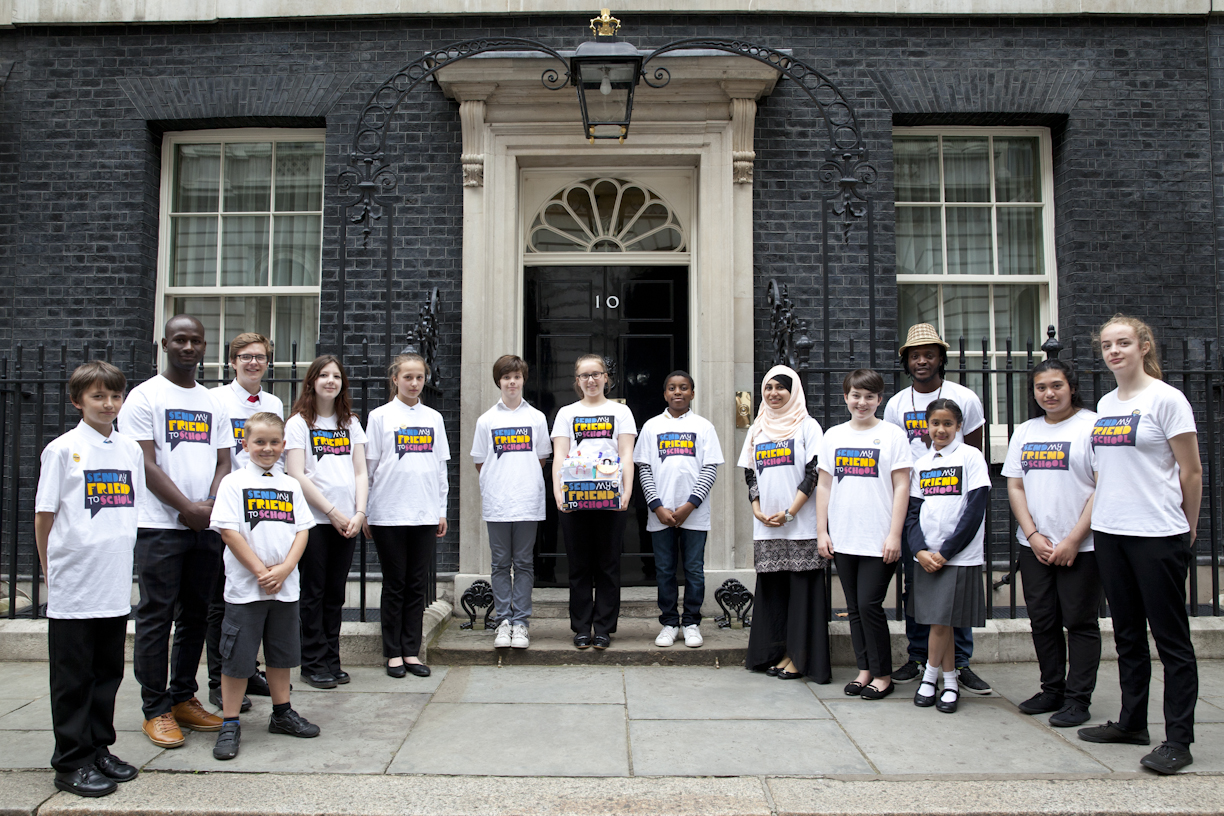Today is the International Day of Zero Tolerance to Female Genital Mutilation (FGM), an annual opportunity to celebrate achievements and advocate to end the practice. This year, Alya Harding, Campaign Officer at Send My Friend to School (former UK young ambassador to the End FGM EU Network), with insights from The Steve Sinnott/ Send My Friend to School Young Ambassadors* Fatou, Emila and Binta in Gambia share the impact of FGM on Girls’ Education in the context of Education in Emergencies.
Zero Tolerance to FGM
FGM comprises all procedures that involve altering or injuring the female genitalia for non-medical reasons and is internationally recognised as an act of gender based violence against women and girls, as well as a violation of their health, dignity and human rights. It is currently estimated that over 200 million women and girls are living with the consequences of FGM, with 4.4 million girls at risk this year. Usually, FGM is performed without consent and on girls aged from infancy to 15 years old. FGM carries both short term and long term consequences affecting the physical, psychological and sexual and reproductive health rights of women and girls. In some cases, it even leads to death.
FGM is a global issue, and urgent action is needed if we are to meet global targets to end FGM and achieve SDG5, gender equality for all by 2030. As we approach the deadline to the global goals, we must ensure collective efforts are sustained through the investment of grassroots and community led initiatives to tackle the practice of FGM.
Impact of COVID-19 on FGM and Girls’ Education
The impacts of emergencies disproportionately affect women and girls, with drivers of FGM being exacerbated due to crises such as COVID-19. In times of crises, young women and girls are more likely to be exposed to FGM and interrelated issues such as child marriage and teenage pregnancy. At the height of the COVID-19 pandemic, over 190 countries closed schools, which impacted 1.6 billion children across the world. Schools play a crucial role in providing safe spaces for girls and learning spaces for affected communities and during the pandemic, reports suggest there were elevated rates of FGM being reported at a local grassroots level, and girls faced additional barriers in returning to school.
“The practice of FGM is not good for students because it makes them sick and prevents them from going to school, sometimes for a long time” (SMF Young Ambassador, Gambia)
The impact of COVID-19 on the practice of FGM has been undeniable, and protecting the learning of all children in emergencies needs to be prioritise as part of an integrated crisis response. Inclusive and quality education for all means protecting the most marginalised children, including girls, and is essential in ensuring girls’ right to education and the right to live a life free from harm. According to UNICEF, girls whose mothers have a primary education are 40% less likely to undergo FGM than those with no education. As the world comes together to accelerate progress to end FGM, the vital role of education cannot be understated. Education, both in schools and in communities can increase awareness of the dangers of FGM, foster questioning and discussion, provide a safe spaces for girls, and involve communities in open discussion to break down stigmas and raise awareness of the harmful practice.
‘Her Voice, Her Future’
“Unfortunately, [in my community] FGM is practiced by women who have no formal training. I went through it, it was very painful and I was very sick” (SMF Young Ambassador, Gambia)
‘Her Voice, Her Future’ is the theme for Zero Tolerance Day 2024, urging the need for more targeted, coordinated and sustained efforts to end the practice by 2030. To achieve common goals SDG5 ‘Gender Equality and empower all women’ and SDG4 ‘Quality Education’ is to make sure that children are not just in school, but given opportunities to practice healthy relationships, develop socio-emotional skills and explore what is important to them in an environment that encourages them to thrive.
Schools are essential places for advocacy to take place and help exercise the voices of young people in decision making processes, and they play an essential role in fostering holistic approaches to tackle FGM. This includes the engagement of boys and men on the consequences of the practice and dismantling cultural beliefs around gender and sexuality. By investing in youth-led forums and clubs in schools, young people, especially girls, are able to mobilise their peers and develop vital skills to sustain community-led pathways to ending the practice and promoting the rights of women and girls.
*The Young Ambassadors network in Gambia comprises a network of over 60 young people, supported by the Gambia Teachers Union leading conversations around inclusive education in their communities.
#hervoicematters #LetMyFriendsLearn


 Send My Friend to School brings together thousands of children across the UK to speak up for the right to education.
Send My Friend to School brings together thousands of children across the UK to speak up for the right to education.